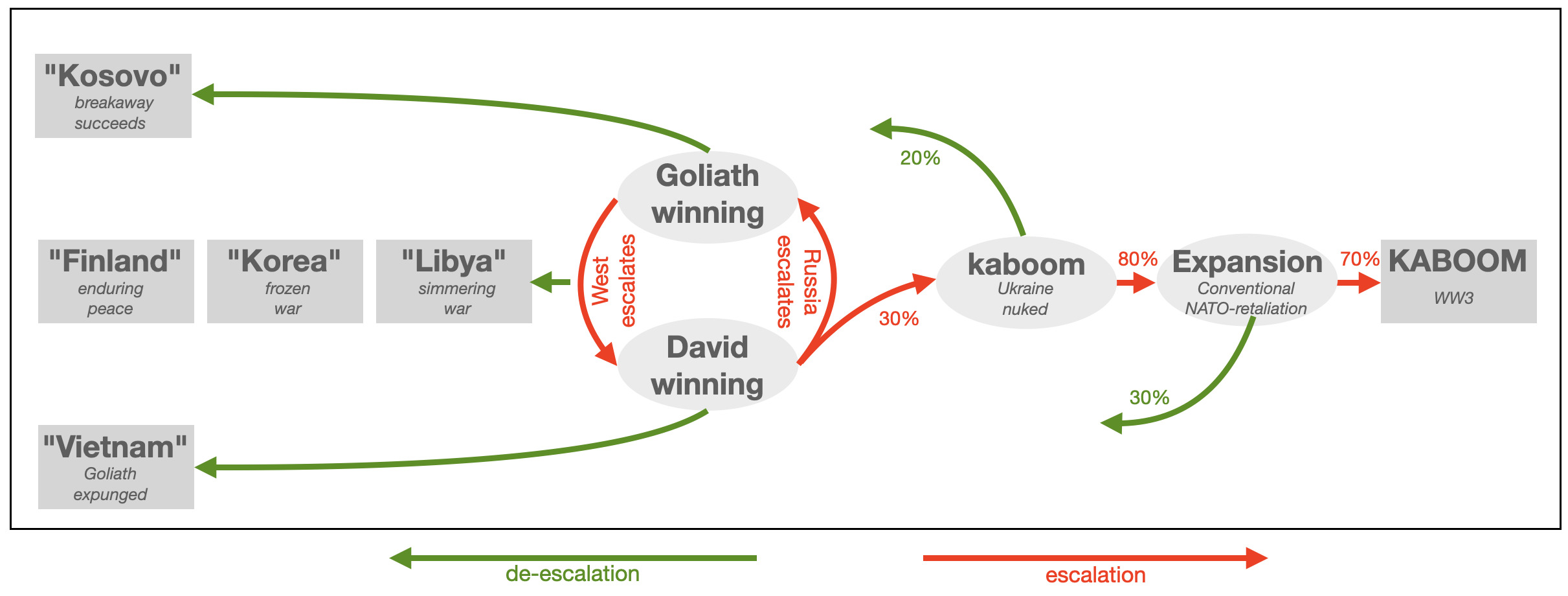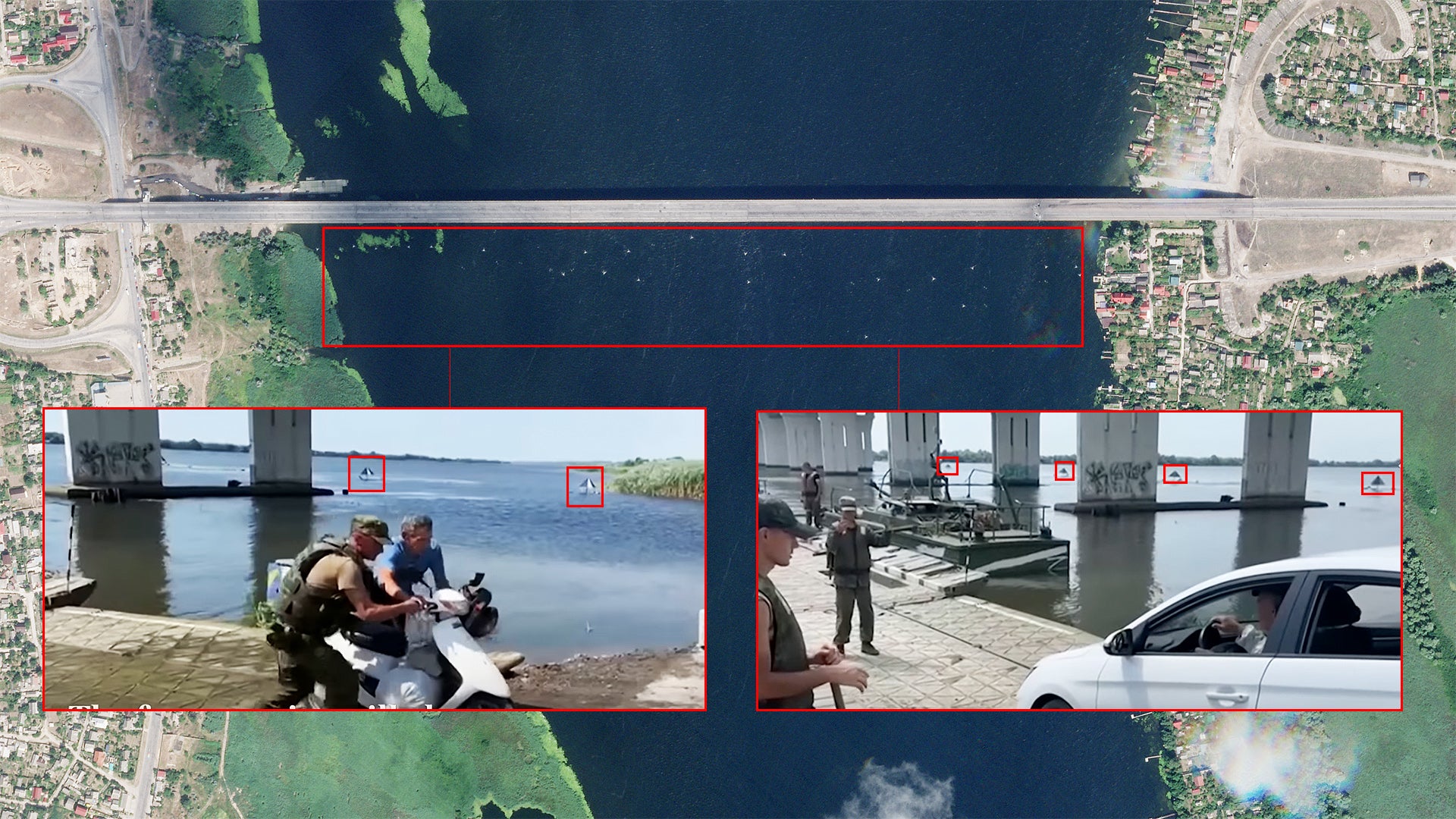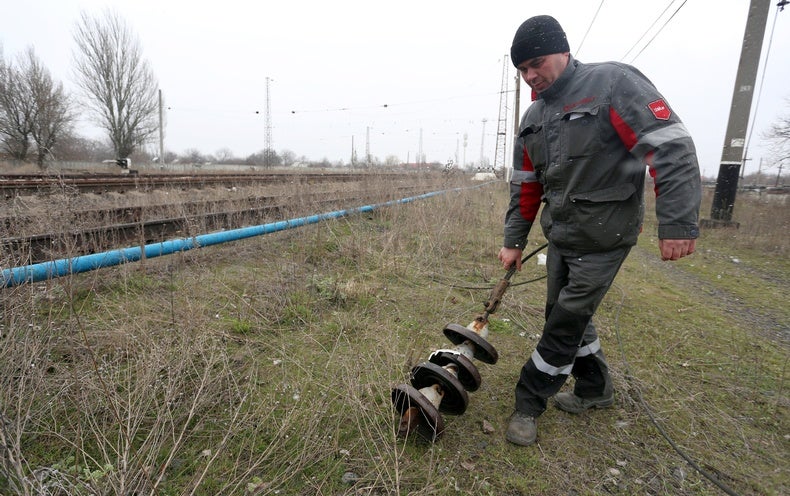Inside Russia with Ekaterina Schulmann. From Sciences Po in Paris, France, but in English. (Sciences Po is short for Institute of Political Studies in Paris, or more precisely, Institut d'études politiques de Paris.)
She presents survey results from within Russia. There's a long preamble about the difficulty of polling in Russia, and the speaker is opinionated. Anyway, the main take-away from the video is that for Russians, the start of the "special military operation" in February of 2022 was a non-event, but the mobilization on September 21st, 2022 was a major event that got noticed. That's when you notice a sudden change in the mood. That's when Russians realized something out of the ordinary was happening.
The key slide is at 1:08:24 in the video. "What mood, in your opinion, prevails today among your relatives, friends, colleagues, acquaintances -- calm or anxious?"
She points out that one of the clever tricks pollsters have developed is, instead of asking people directly their opinion on something, say asking directly whether they support or oppose the war in Ukraine, you can ask them how they feel. Or better yet, you can ask them how the people around them feel, because people will always say they feel just fine. (Maybe that is the social norm in Russia?)
So the question is, "What mood, in your opinion, prevails today among your relatives, friends, colleagues, acquaintances -- calm or anxious?"
On the 18th of September, 2022: 57% calm, 35% anxious.
On the 25th of September, 2022: 26% calm, 69% anxious.
Bam! Huge change. The date of the mobilization was the 21st of September.
Earlier in the video she does present polling data that asks directly whether people support or oppose the "Russian military operation in Ukraine" (they can't call it a "war"). By age, people in the 18-29 age bracket oppose the war, 30+ support, and the older, the more support, with the 60+ age bracket supporting the war the most.
Strongest predictors of support for the war: age 55+, getting information from official sources (TV, radio, newspapers), trusting the official sources, confidence in Russia's victory, expecting war to end soon, increase in income because of the war.
Strongest predictors of opposition to the war: age less than 55, getting information from the internet with VPN, dismissal from work, loss of business, saving food, expected deterioration of well being, decrease in income because of the war.
The biggest complaint that showed up on the surveys is the war has gone on too long. People expected the "special military operation" to be fast and brilliant.
"How do you feel about Russia's military actions in Ukraine?" "Proud" is most popular answer (and safest), but trended downward in 2022.
Asked whether the financial position of one's family is going to get better or worse in the next 6 months, the "better" line actually went up over the course of 2022. She speculates that this is because people felt they had beat the sanctions.
Audience size of the main TV channels in Russia declined over the course of 2022. She speculates that the TV producers were making their content too much for "one person" and allowed the rest of the audience to get bored.
Main sources of information: She shows a graph that starts in 2013 and shows a drop from 2013 to 2021 in TV consumption, but TV is still tops at 64%. Online media increased to 41%, social media to 33%, but then there's an additional line for "Telegram" which spiked upwards to 19% in March of 2022, and has stayed there at 19% ever since.
Near the end she present a poll from before the war, 2014 and 2018. The question was something along the lines of "What values should Russia's future be based upon?" (2014 to 2018) She zips through a series of answers, like "social fairness", "human rights and freedom", "Russia should be great superpower", "stable order", "closer relations with the West", "free markets, private economy", and "Russia for Russians".
She then went on to make the remarkable claim that, if Russia was a society with free elections, the most popular answers on this survey would correspond to the political parties. And they would correspond more or less to political parties we are familiar with in Western countries: A "social democratic" party, a "liberal" party, a "conservative traditionalist" party, a "libertarian" party, and so on.
Now, unlike many of her slides which had English translations along the top or bottom, this one didn't have any English translations, but I was curious enough about it I took the trouble to use Google Translate to translate the whole slide. This is at 1:20:05 in the video.
The question asked, as translated by Google Translate, was: "On such values, according to the Russians, the future of Russia should be built (%):"
There a line of small text under that that says: "Source: survey data of the Research Center of the Institute of Sociology of Wounds." "Sociology of Wounds" is a weird translation. In the video she says the survey was done by the Russian Academy of Sciences Institute of Sociology. But the slide appears to really have the word for "wounds" on it, so, don't ask me.
Anyway, the options going down the left side are:
"Social justice"
"Human rights, democracy, freedom, personal expression"
"Russia must become a great power"
"Return to national traditions, moral and religious values"
"Strong hard power capable of ensuring order"
"Rapprochement with the West, with modern developed countries"
"Free market, private ownership, minimum government intervention in the economy"
"Russia first of all, for Russians"
"None of these slogans but expresses my personal dream of the future of Russia"
Regarding the first one, "Social justice", she says the word "spravedlivost" is a difficult Russian word. Sometimes it's justice, sometimes it's mercy, sometimes it's equality, sometimes it's keeping to the law, sometimes it's making an exception to the law. "Fairness" might be the best translation. But Russians always know what "spravedlivost" means in any given situation.
Google Translate went with "justice" so I'm going with "justice" but it should be noted that the Russian phrase "sotsialnaya spravedlivost" doesn't mean the same thing as the phrase "social justice" in English.
"Social justice" -- increased 12% from 47% to 59% between 2014 and 2018
"Human rights, democracy, freedom, personal expression" -- increased 10% from 27% to 37%
"Russia must become a great power" -- stayed the same at 32%
"Return to national traditions, moral and religious values" -- decreased 8% from 35% to 27%
"Strong hard power capable of ensuring order" -- stayed the same at 26%
"Rapprochement with the West, with modern developed countries" -- increased 3% from 11% to 14%
"Free market, private ownership, minimum government intervention in the economy" -- increased a tad from 13% to 14%
"Russia first of all, for Russians" -- increased a tad from 10% to 12%
"None of these slogans but expresses my personal dream of the future of Russia" -- went down a tad from 9% to 8%
What's notable is that 2014 to 2018 is a short period of time, only 4 years, yet "Social justice" and "Human rights, democracy, freedom, personal expression" saw big increases and "Return to national traditions, moral and religious values" decreased a lot.
One of the entries, interestingly, was "Rapprochement with the West, with modern developed countries". (Google Translate chose the word "rapprochement" -- in the talk she says "closer ties" which is more like how people would say it in real life.) I thought this was interesting because the war definitely reversed course on this one in a major way. But interestingly not many Russian were for it even before the war, in 2014 (11%) or 2018 (14%). So maybe to your average Russian, the severed ties to the West are not a big deal?
Inside Russia with Ekaterina Schulmann - Sciences Po
#geopolitics #russia #ukraineconflict












